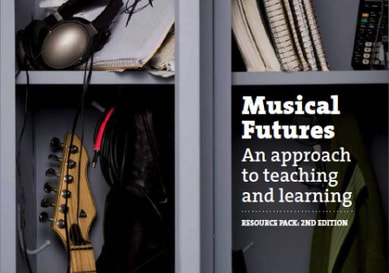Greenʼs informal learning pedagogy provides classically trained instrumental and classroom music teachers with practical tools to successfully integrate informal practices of popular musicians into their teaching. According to Green (2013), "Informal approaches tend to involve a particularly deep integration of listening, performing, improvising, and composing throughout the learning process" (p. viii). Musical Futures was founded on Greenʼs model, which encourages student-driven learning, collaboration, and group performance. Here's what music teachers had to say about how Musical Futures has impacted their teaching, student learning and engagement. All of their schools have become Musical Futures Champion Schools:
Through self-teaching and providing a relevant social context, Musical Futures helps students develop their musical identity and gives them an equal voice in the classroom (Wright, 2014). Programming includes creative music-making through instrumental ensembles, singing supported by mobile technology and whole classroom approaches to teaching drums, keyboard, ukulele, guitar and bass to "keep music alive in our schools in order to nurture the creative talent of tomorrow" (Musical Futures, 2017, para. 3).
|
Musical Futures brings the informal approach of out-of-school learning into the in-school setting. Instead of a formal setting which focuses on the individual, has a linear approach and is teacher-led, an informal approach is social, experiential, networked and non-linear. Download a free copy of the Musical Futures Resource pack and follow them on Facebook and Twitter.
Every resource that Musical Futures offers on its website is done with the practicalities of school classrooms in mind. |
In 2017, Musical Futures was selected as one of the top ten innovative education projects by the global education non-profit HundrED. In this short video, Lucy Green explains the informal learning process and what students and teachers can learn from popular musicians.

